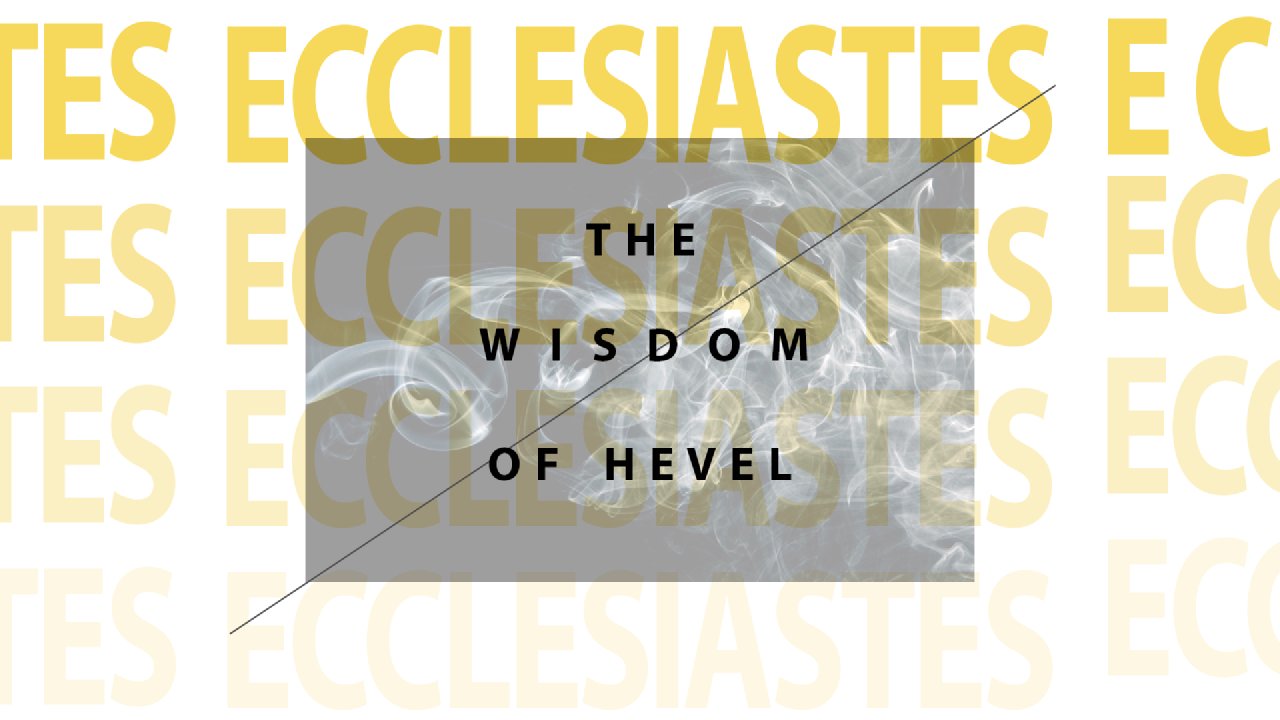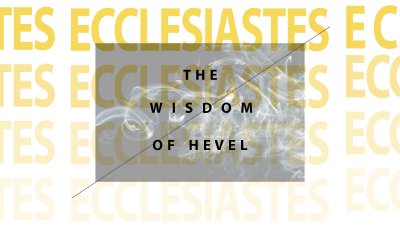NOTE: Due to technical difficulties, the worship wasn't able to be included in the recording. We apologize for the inconvenience!
In this introduction to the book of Ecclesiastes, we see the Teacher's wisdom is words from his own experience. The book serves as a "Yes, but..." to the wisdom found in Proverbs, nuancing and demanding that we see that wisdom is found in and through our own experiences. They are our first and final teacher by which we grow in wisdom. Experiences are not something to be ignored, skirted, or numbed, but leaned into. When we do we can see that the Teacher's claim that everything is "hevel" (meaning, "fleeting and/or senseless") is an urging for us to prioritize what actually matters while not getting caught up in the senseless and fleeting things.

The Meaningless Message
February 21, 2021 • Grant Romoser-Claunch
More from
Ecclesiastes: The Wisdom of Hevel




